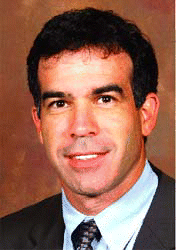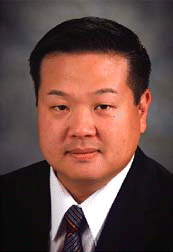Snoring is a common complaint of patients (and their spouses) treated by otolaryngologists.


Snoring is a common complaint of patients (and their spouses) treated by otolaryngologists.

Of the more than 13,000 health care providers who are members of the American Academy of Otolaryngology-Head and Neck Surgery, exactly three of them officially practice holistic otolaryngology as members of the American Holistic Medical Association, which itself is only about 1,000 members strong and just now entering its 30th year.

Disease-specific outcomes measures in otolaryngology-head and neck surgery can be completed by your patients before and after treatment, enabling tracking of these important outcomes with a minimum of disruption to the normal practice routine

Otalgia is a common complaint of patients presenting to both general practice and otolaryngology clinics.


During her presentation at the 2007 Combined Otolaryngology Spring Meeting in San Diego, Dana M. Hartl, MD, PhD, from the Department of Otolaryngology Head and Neck Surgery at the Institut Gustave Roussy in France, described her findings from a retrospective, bi-institutional study designed to review the results of a large series of patients with early glottic squamous cell carcinoma treated with curative intent by transoral laser resection.

Affecting more than 30 million Americans, chronic rhinosinusitis (CRS) has been a frustrating disease with no long-lasting results from traditional steroidal and antibiotic treatment, or from surgery. With both clinicians and patients desperate for a solution, it is not surprising that hope-and controversy-has arisen over a potential new therapy.

Non-acidic reflux is a major cause of laryngeal inflammation, and patients with this disorder present with a constellation of symptoms that differ from classic gastroesophageal reflux (GERD).

Physicians can successfully perform ultrasound-guided (US) fine-needle aspiration biopsy (FNAB) of thyroid nodules in the office instead of referring patients to a hospital-based radiologist for the procedure, according to new data presented at the annual meeting of the American Academy of Otolaryngology-Head and Neck Surgery.

The targeted therapies erlotinib and cetuximab, in combination with standard chemotherapy regimens, are well tolerated and have very encouraging activity in recurrent/metastatic head and neck squamous cell carcinoma, according to two presentations at the American Society of Clinical Oncology (ASCO) 2007 Annual Meeting in Chicago.